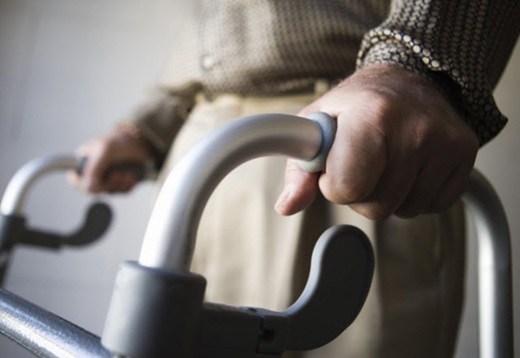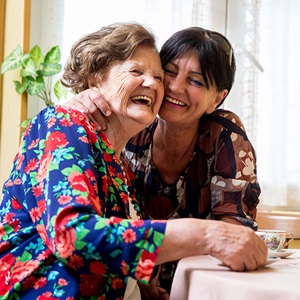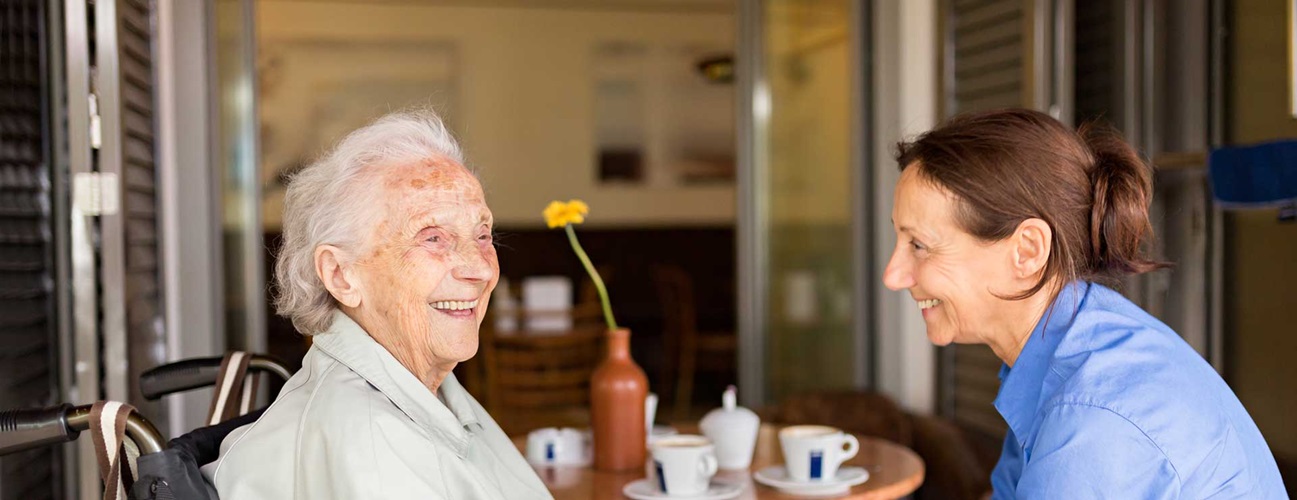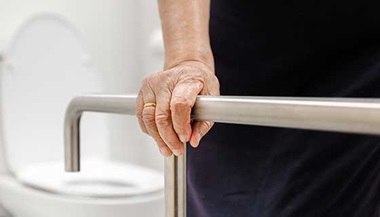Dementia Care: Keeping Loved Ones Safe and Happy at Home
Of the 5.8 million people in the United States living with Alzheimer’s disease and other types of dementia, the majority live in their own homes over the course of their illness — even in those in more advanced stages and at end-of life.
And home care isn’t always easier — meeting the complex and ever-changing care needs for people with dementia can be challenging and caregiving often falls on the shoulders of family members and friends. And while caregiving can be rewarding, caregivers can burn out and experience greater health problems themselves, physical and emotional burden, as well as financial strains from lost time at work or from paying out of pocket for care or services, experts warn.

Dementia care involves two people: the person with the illness and the person taking care of them. When Johns Hopkins researchers studied more than 600 Baltimore residents with dementia and their caregivers, they found a staggering 97% to 99% of both groups had unmet dementia-related care needs.
For some, keeping a loved one at home is a personal preference, and for others, it may be the only affordable option — in either case, home care can be overwhelming for even the savviest and most experienced caregivers at times. But don’t lose heart: Help and support is out there, for your loved one and for you. Here are some tips that may help:
How do I prepare to give dementia care at home?
Understand and Accept Your Loved One’s Dementia Diagnosis
A dementia diagnosis is difficult on both the patient and their loved ones. For many, a diagnosis is the beginning of a long and uncertain journey. While the road may be difficult, there are resources and education that can help.
Many families begin their path to acceptance by learning more from Alzheimer's support organizations. These organizations often hold support groups for patients and families affected by dementia. They can also connect families to area practitioners and information. It is important for families to understand that patients with dementia can have a very good quality of life.
Equip Your Home with Assistive Devices
Simple fixes, such as grab bars in the bathroom, carpets tacked down to prevent falls, and locked gun closets, guard against accidents that drive people into nursing homes. In one study, Johns Hopkins researchers found that 90% of patient needs in those with dementia were home safety related.
Practice Self-Care
Some caretakers find that caring for a loved one with dementia is a full-time job. A lot of time, attention and life changes can be needed to ensure the loved one’s needs are met and they are safe.
As with any job, taking time off is needed to maintain health well-being. As the saying goes, “You cannot pour from an empty cup.” Experts recommend that caregivers schedule opportunities for respite and short breaks and identify self-care practices that refresh and recharge them. This might include talking with family members to see if they can provide supervision or assistance once a week or might be able to care for your loved one weekend a month. In addition, check out these other methods to avoid burnout.
What dementia home care services are available?
Connect with a Dementia Care Coordinator
There are many elements to consider when beginning to care for a loved one with dementia at home. Legal, safety, health and interpersonal changes will need to be made. Dementia care coordinators can help with safety concerns, medical attention, medication management, nutrition support and more. They can be especially helpful when a loved one is dealing with other medical conditions for which they need treatment.
Some care coordinators will conduct an initial assessment to thoroughly check your home and living situation. They will create a list of needs and work with caregivers to address the improvements most impactful to the home environment. Together, dementia care coordinators and caregivers can fix safety concerns or remove possible triggers before they become a problem. The goal is to keep people at home with the highest quality of life.
As a bonus, loved ones who have some assistance from care coordinators remain in the home longer. In a Johns Hopkins Maximizing Independence at Home trial, researchers found that patients who were in contact with a care coordinator at least once a month for 18 months were less likely to move out of their home or die compared to those in the control group.
To find dementia care coordination services in your area, talk to your doctor or local organizations.
Treatment Memory Care Services from the Comfort of Home

Enroll in Medical Alert Programs
Safety becomes more of a concern as dementia progresses. For peace of mind, consider enrolling in programs that can improve or monitor the safety of people with dementia. Many programs offer medical ID jewelry or 24-hour assistance if a loved one with dementia wanders off or becomes lost. If additional assistance is needed, medical alert services can help by checking in on loved ones and notifying caregivers if there is no response.
Check Elder Care and Dementia Care Services in Your Community
There may be times when caregivers are not able to care for their loved one. Adult day care centers can provide entertainment and care for people with dementia while giving much-needed breaks for caregivers.
Home services are also available to give you more time in your day. Certified nursing assistants can visit your home to help with medical needs, such as administering medications or caring for wounds. If you need more help, in-home health aides can cover light housekeeping, cooking and other nonmedical needs. Some grocery stores and meal services can also assist by delivering food or meals to your home. Try exploring the options that are available to you.
Ask your loved one’s doctor or dementia care coordinator for local resources and contacts.
Can I care for my loved one at home through all stages of dementia?
Most people with dementia continue to live at home as their condition progresses — many through the end of life. While this may be the experience of many, individuals and families have different needs and preferences, and home care may not be the right choice for everyone.
Support has the most impact when introduced early. A preventive model helps educate the family to be dementia-smart and understand the disease progression and triggers down the road. But if the person’s needs exceed the help that’s available or if it just doesn’t make sense for family’s particular situation, nursing homes and assisted living residences are good alternatives.
What if I need more help with dementia care?
Consider Moving to a 55 and Older or Retirement Community
While adding safety features in your existing home is a good option, another option to consider is moving to a community geared to older residents. While these communities may vary in cost, they often come with features to help care for a loved one at home, such as nonslip tubs. Many continuing-care retirement communities include higher levels of care as a person’s dementia advances, so a more active spouse may live independently on the same campus.






